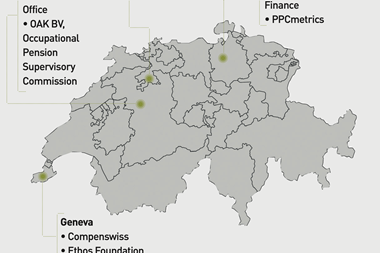In his March 2023 Budget, UK chancellor Jeremy Hunt challenged the Local Government Pension Schemes (LGPS) in England and Wales to “move further and faster on consolidating assets”, proposing that LGPS funds transfer all listed assets into their pools by March 2025.
Key points
- The UK government has suggested further consolidation by Local Government Pension Scheme pools
- Pooling has already achieved significant cost and performance gains, and better governance
- Potential drawbacks of further pooling include funds losing sovereignty and uncertainty causing delays in investment decisions
The budget document said: “This may include moving towards a smaller number of pools in excess of £50bn to optimise benefits of scale. While pooling has delivered substantial benefits so far, progress needs to accelerate to deliver and the government stands ready to take further action if needed.”
A consultation will be launched in the near future. The plan has received a mixed response, but how successful has pooling been so far?
Jo Donnelly, secretary for the LGPS advisory board, says that from the perspective of the Department for Levelling Up, Housing and Communities (DLUHC), there have been significant cost savings.
She adds: “When pooling was introduced, the government also indicated that it wanted to see more investment from the LGPS into UK-based infrastructure. It hoped the greater scale offered by pooling would make such investment easier, and we’d like to see some analysis of whether that has worked as hoped.”
Donnelly also says evidence appears to show the LGPS has become more diversified in its asset mix, including more in alternative asset classes. But she believes the government would like to see more assets invested into UK opportunities to support growth, and levelling up.
However, Donnelly warns: “Maintaining effective governance is at least as important as size, in our view. Different governance models have been trialled and it seems a good time to review these and draw any lessons for the next phase of activity.”
Praise for professionalism
ClearGlass Analytics, the independent cost transparency data provider, has wor ked with several LGPS funds and pools since their inception.
“The most obvious thing about the pools we have worked with is the professionalism and the skills they demonstrate, irrespective of the operating, governance and relationship model they adopt,” says Chris Sier, CEO of ClearGlass Analytics. “Professionalism as well as size bring results in manager selection, resulting in significant cost and performance gains.”
He highlights Border to Coast Pensions Partnership, a ClearGlass client, with aggregate ongoing charges of nearly £80m (€91) a year (16bps).
Based on the detailed benchmark data collected by ClearGlass from 1,000 pension schemes, the median value the pool should have been paying for asset management was almost £200m (42bps) a year.
So the immediate impact of the scale, governance and manager selection of Border to Coast is a saving of £120m (26bps) a year across its LGPS fund clients.
Furthermore, the pool ranks first in ClearGlass’s scheme efficiency index for the 1,000 schemes it monitors.
“In other words, it has delivered a procurement capability so great it exceeds even the efficiency limits set by its already prodigious size,” says Sier. “It bats well out of its league, despite already being – due to its size – in a league almost of its own.”
Benefits for funds
The impact of pooling on individual funds is also significant.
One fund client had only partially moved its fund management to Border to Coast.
“For those funds the pool managed – 30% of the fund’s asset base – it delivered a direct fee saving of £7m (€8m) – 25bps – per annum,” says Sier. “That is, the pool delivered a 25bps ongoing charge-fee reduction for the assets it took on board – an amazing achievement.”
Partner funds in Border to Coast have so far pooled 80% of their assets, with plans to do more.
Ewan McCulloch, chief stakeholder officer at Border to Coast, says: “Pooling has helped our partner funds achieve far more than just cost savings, operational resilience, and a centre of investment excellence. We are providing them with access to new types of investments – for example, our £12bn private markets programme includes ‘Climate Opportunities’, which is delivering £1.4bn of investments to drive the transition to net zero.”
He adds: “Due to our collective scale, we are better able to influence the behaviour of firms we invest in, drive better standards of reporting on responsible investment, and engage with the wider financial services industry on creating value for the LGPS.”
But while the cost benefits of pooling are generally accepted, there are voices advising caution in the way that any further consolidation takes place.
“Different governance models have been trialled and it seems a good time to review these and draw any lessons for the next phase of activity”
Jo Donnelly
Tony English, head of LGPS at Mercer, agrees that many LGPS funds have received benefits from pooling, including lower costs, greater collaboration and better governance, freeing up pension committees to focus more on strategic matters.
“However, one size does not fit all, so we would caution against a rules-based approach for enforcing pooling and instead encourage a principles-based approach focussed on outcomes,” he says. “In particular, a minimum pool size of £50bn seems somewhat arbitrary when there are many factors which can affect the governance and efficiency of a pool, especially the number of funds within it.”
English adds: “Reference to reducing the number of pools could also be counterproductive to the pooling agenda, if it causes uncertainty among funds and puts them off committing more assets in the fear of incurring double transaction costs if they move assets to one pool which are then moved to another pool. It also creates uncertainty for the pools in terms of retaining and attracting talented staff.”
Merger reservations
The Pensions and Lifetime Savings Association (PLSA) is supportive of pooling in the LGPS.
But Tiffany Tsang, head of defined benefit, LGPS and investment at the PLSA, says, “As it is only five years since the first pooling reform, we think a further large-scale reform would be unlikely to achieve very much at present.”
![Ewan McCulloch (7)[33]](https://d3ese01zxankcs.cloudfront.net/Pictures/480xAny/6/1/4/138614_ewanmcculloch733_634858_crop.jpg)
“Pooling has helped our partner funds achieve far more than just cost savings, operational resilience and a centre of investment excellence ”
Ewan McCulloch
In relation to new proposals for investing in illiquid assets – which the government would like to encourage, and which could be easier to carry out by larger pools – Tsang says: “It is important to remember that LGPS funds have a fiduciary duty towards their members, so any strategy will need to put the interests of the funds’ members first. Additionally, many LGPS funds already invest locally in illiquid assets.”
Tsang adds: “We and our membership remain open-minded, but the devil will be in the detail and it is premature to make any conclusions at present.”
Gerard Moore, who has served as the independent chair of three local pension boards, is considering the proposed changes from the governance perspective.
“It has already required significant inputs of finance, expertise, skills, time, co-operation and trust at several levels in order to identify and establish the appropriate governance and compliance arrangements for the existing pools,” he says.
And he considers that the current arrangements, albeit using different models, are working well.
“In addition, some pools, including the Wales Pensions Partnership, have already established an effective, unified, highly-motivating, clear and proud identity and ‘ownership’, which could be lost if force-fitted into another pool,” he cautions.
Moores main concerns about further mergers are:
● Could this herald the death knell of funds’ sovereignty to make their own strategic investment decisions?
● Is there a danger merged joint governance committees would no longer find room for all partner funds to be represented – a democratic deficiency? Or that they become unwieldy in size?
● At the outset of pooling, all pension funds could choose which emerging pool they wished to help form as a partner fund. If pools are to be merged, would it be by government directive or local democratic decisions?
● With so many imminent changes of legislation and guidance, do hard-pressed officers and pension committee chairs and members have the capacity to cope with the imposition of another major change that potentially moves decision-making further away from the concept of local democracy, which has been the essential basis of the LGPS?
The LGPS advisory board also has reservations.
“Economies of scale have a limit, and reorganisation of the existing pools would add additional transition costs, as assets are transferred,” says Donnelly. “We would therefore want to scrutinise the business case for any further rationalisation of the number of pools.”
She adds that the suggestion that some of the current pools might not exist in the longer term could also have the unintended consequence of causing some funds to delay transferring assets to their pool until they are sure that its future is assured.
But she says: “We aren’t aware that DLUHC has any legal levers to require funds to always use a pool or to merge pools, so it will need to use evidence and persuasion to make its case.”
Country Report – Pensions in UK (May 2023)

UK pensions are at a crucial juncture. The UK Parliament’s inquiry into the LDI crisis of September 2022 shed some light on its causes, but the debate on the role of LDI is alive and well. Meanwhile, regulators including The Pensions Regulator and the Financial Conduct Authority have advised pension ...
- 1
- 2
- 3
- 4
- 5
![Ewan McCulloch (7)[33]](https://d3ese01zxankcs.cloudfront.net/Pictures/80x50/6/1/3/138613_ewanmcculloch733_634858_crop.jpg) Currently
reading
Currently
reading
UK: Is it too soon to reform pension pools?
- 7
- 8
- 9
- 10











![Ewan McCulloch (7)[33]](https://www.ipe.com/Pictures/80x50/6/1/3/138613_ewanmcculloch733_634858_crop.jpg)























